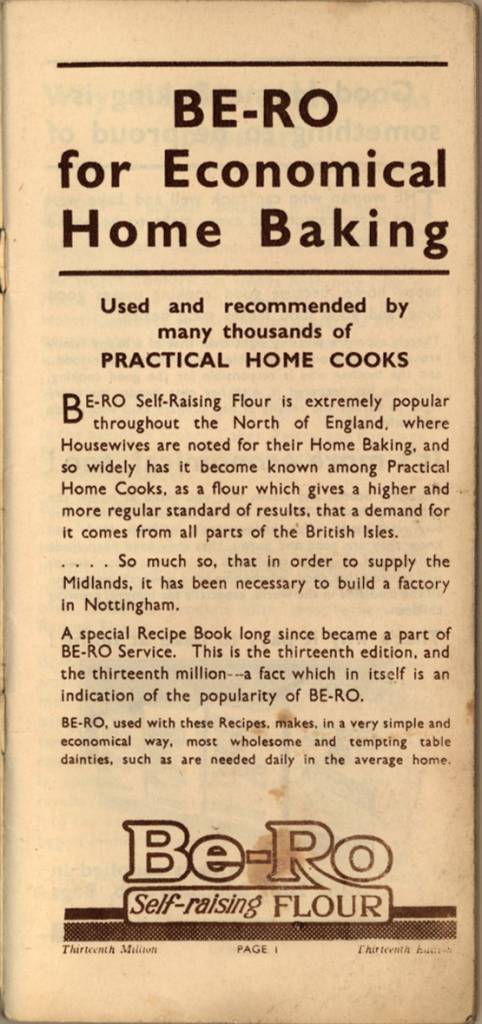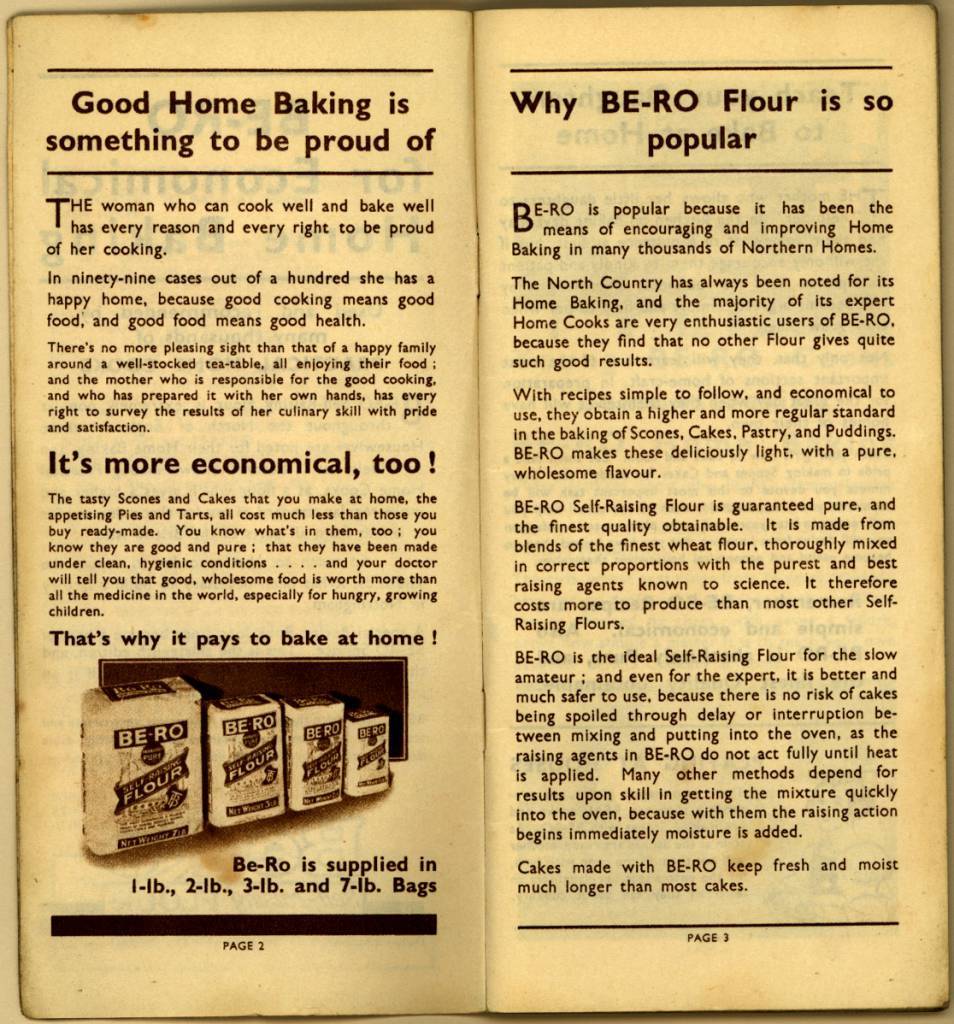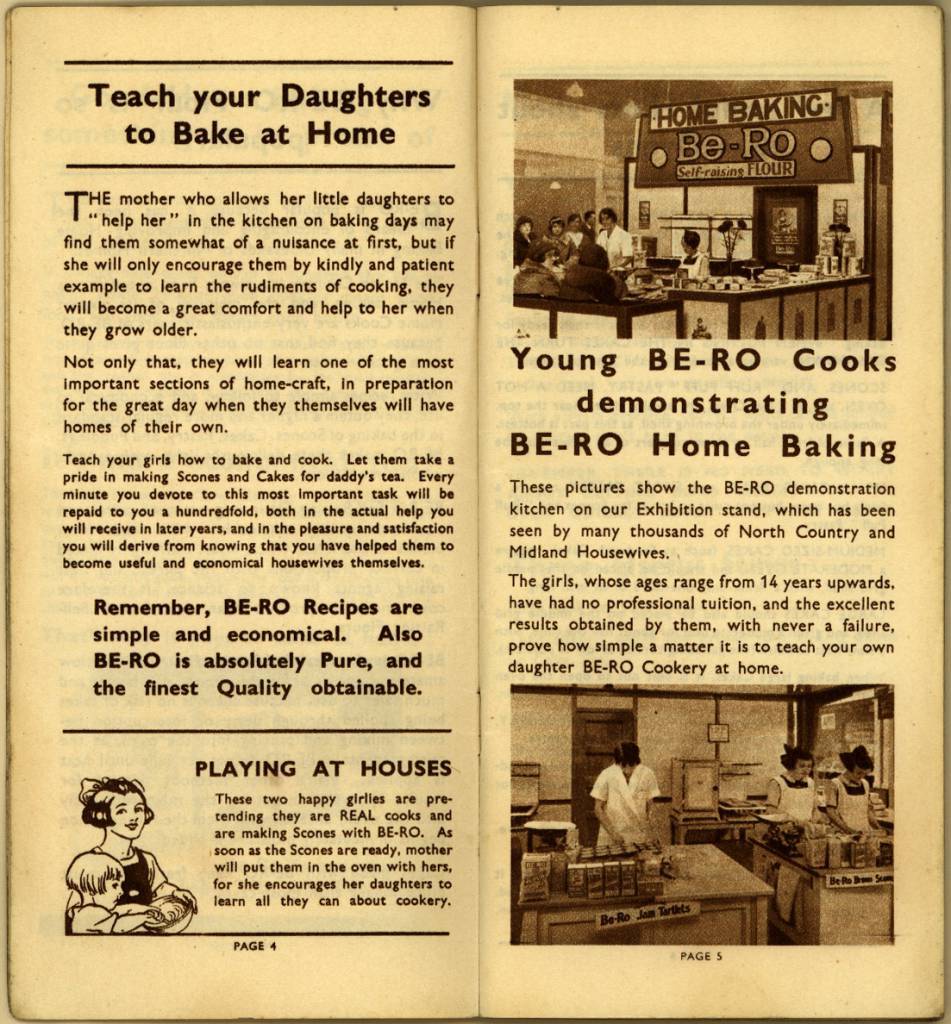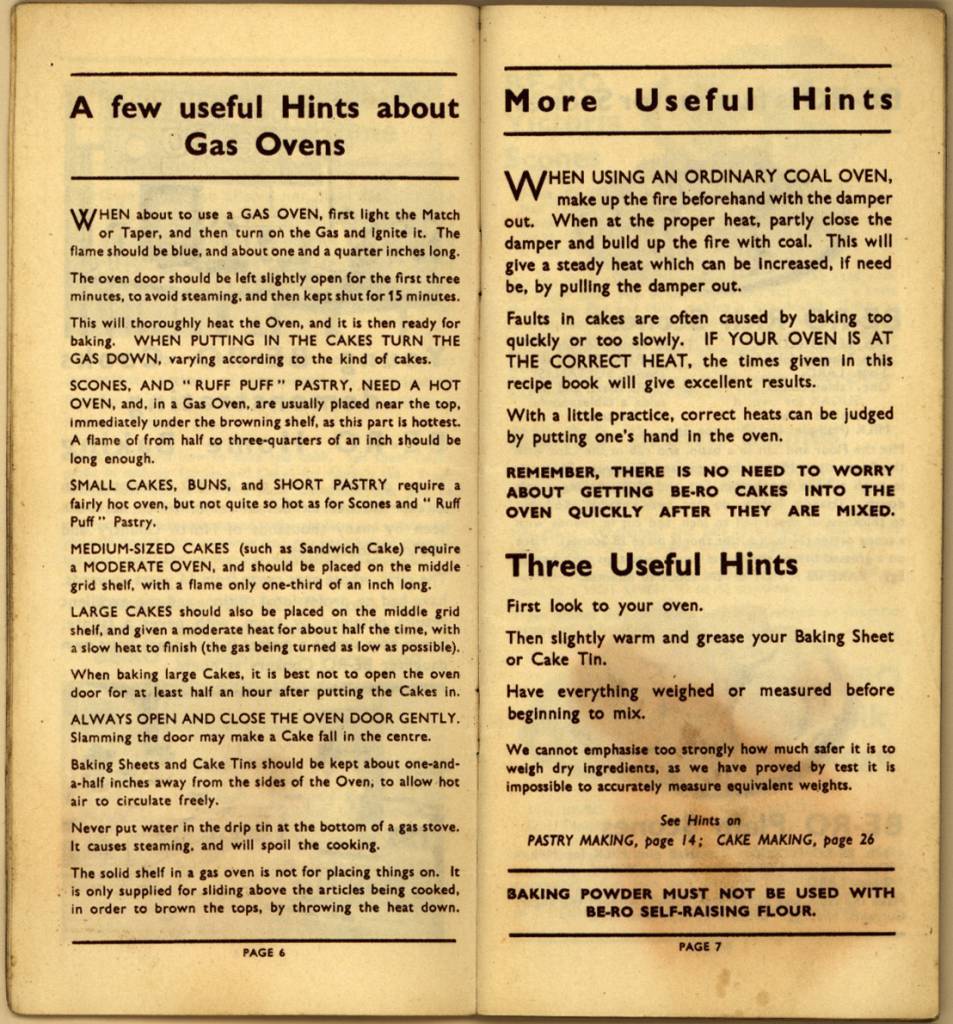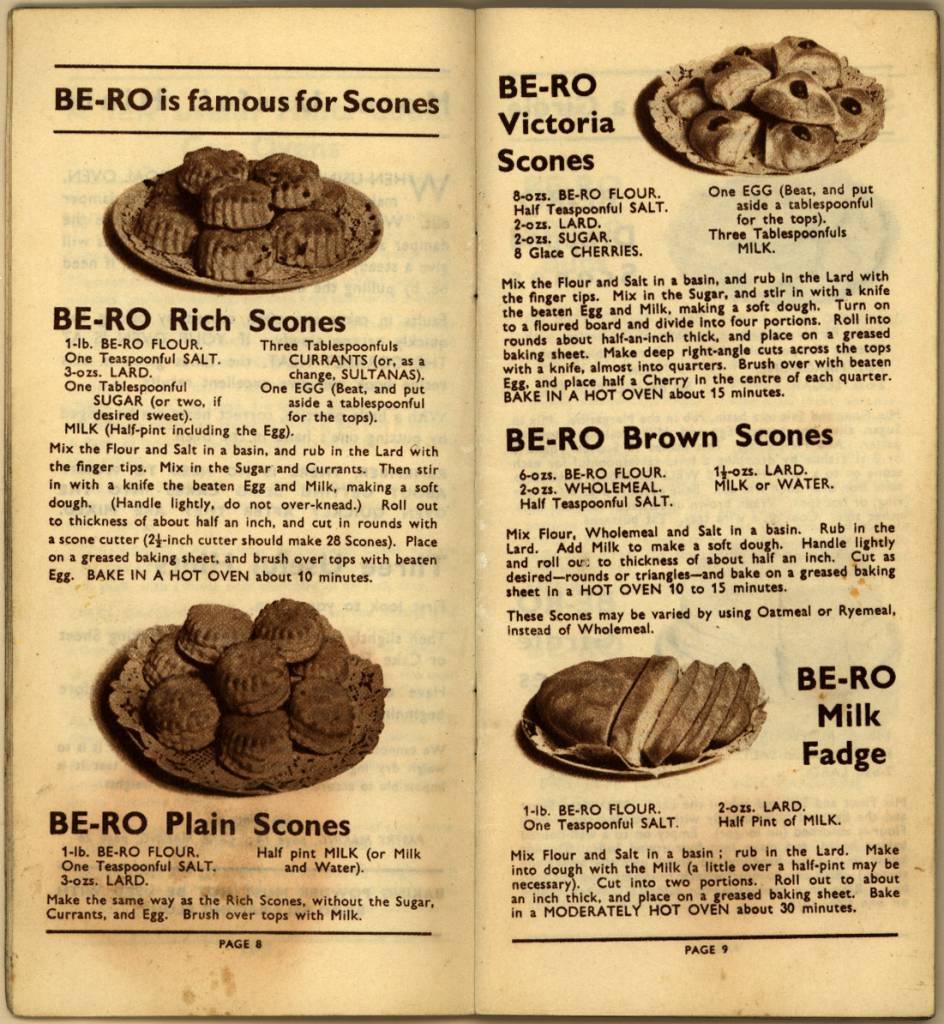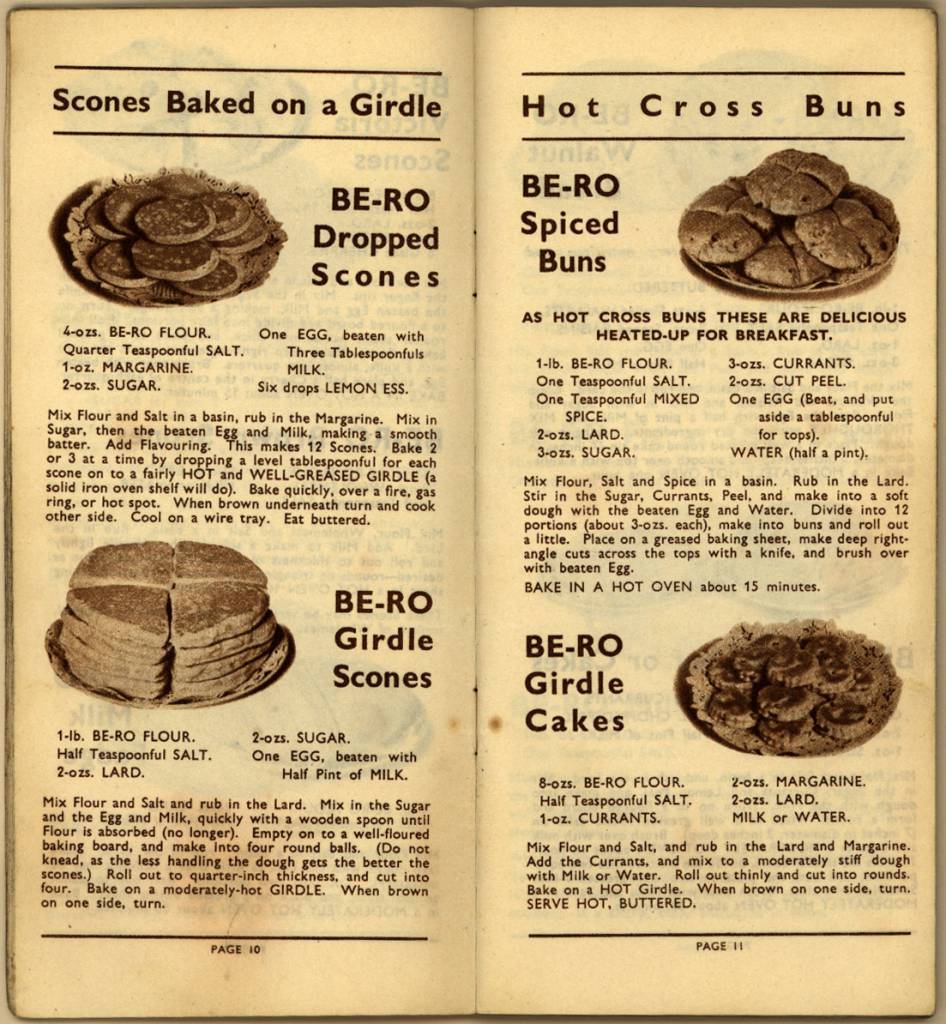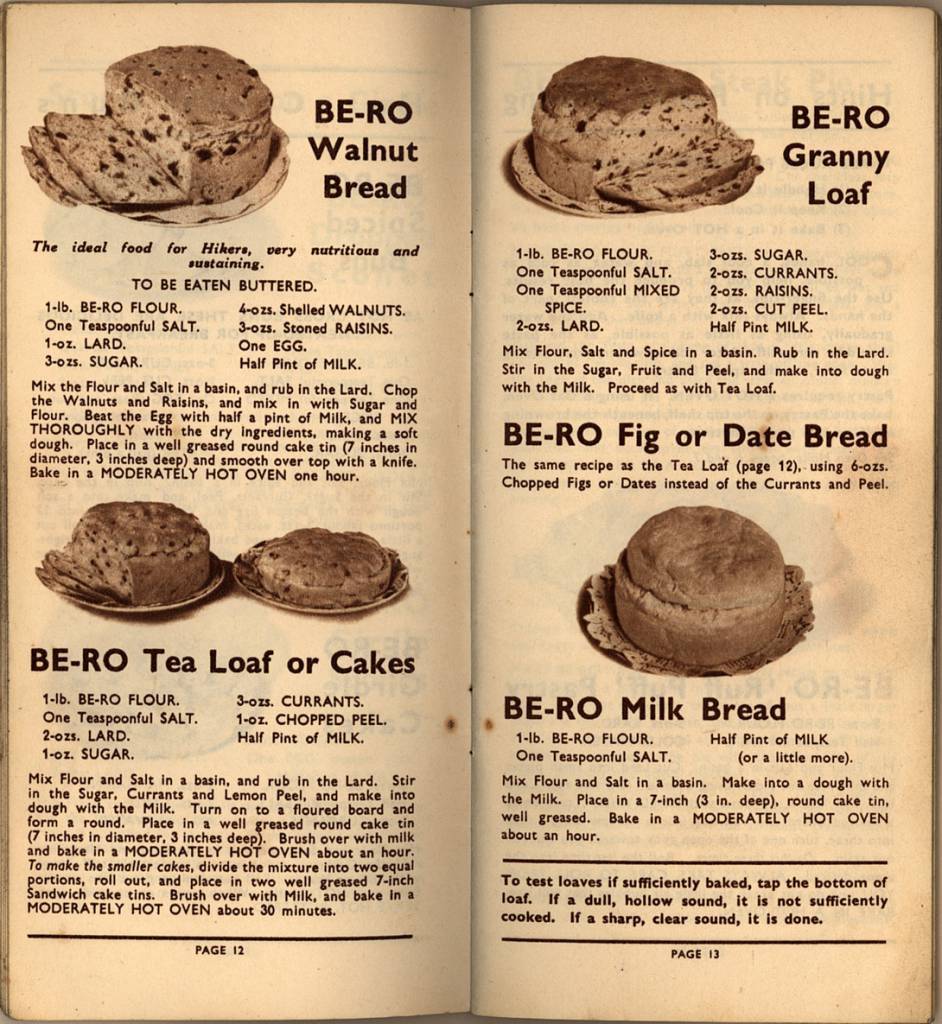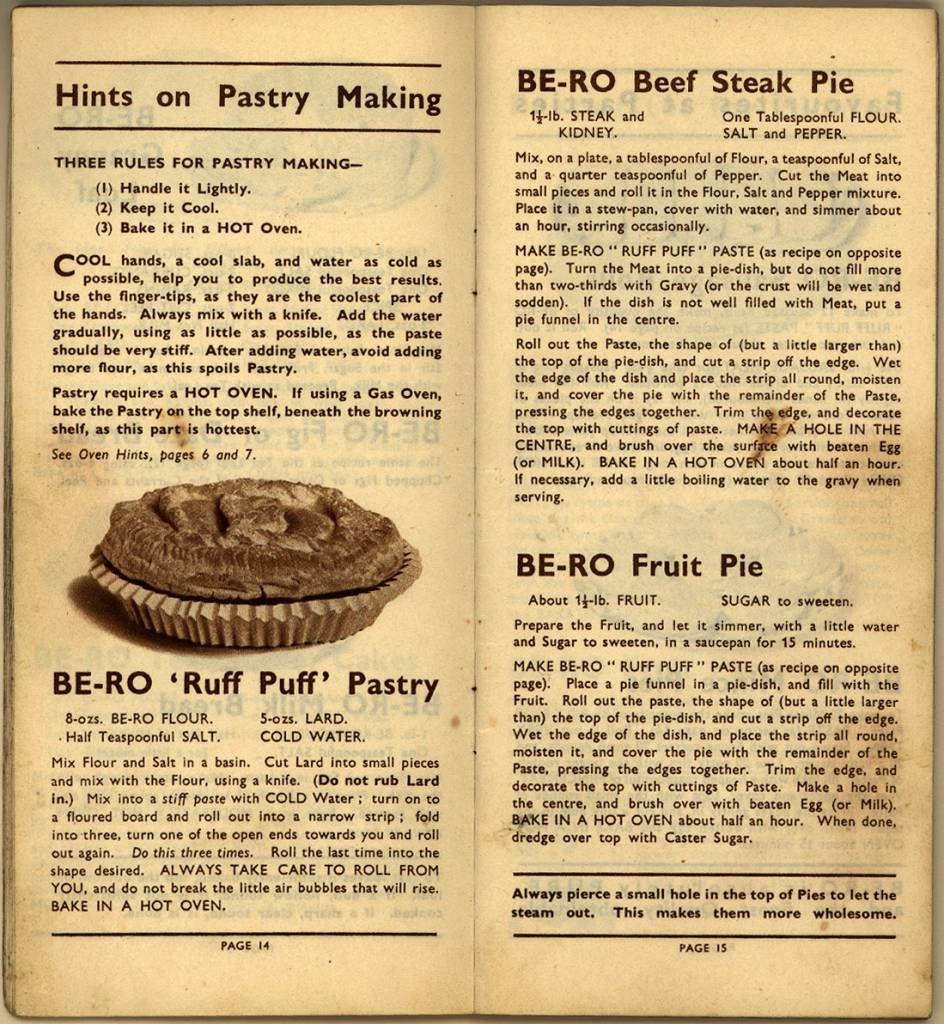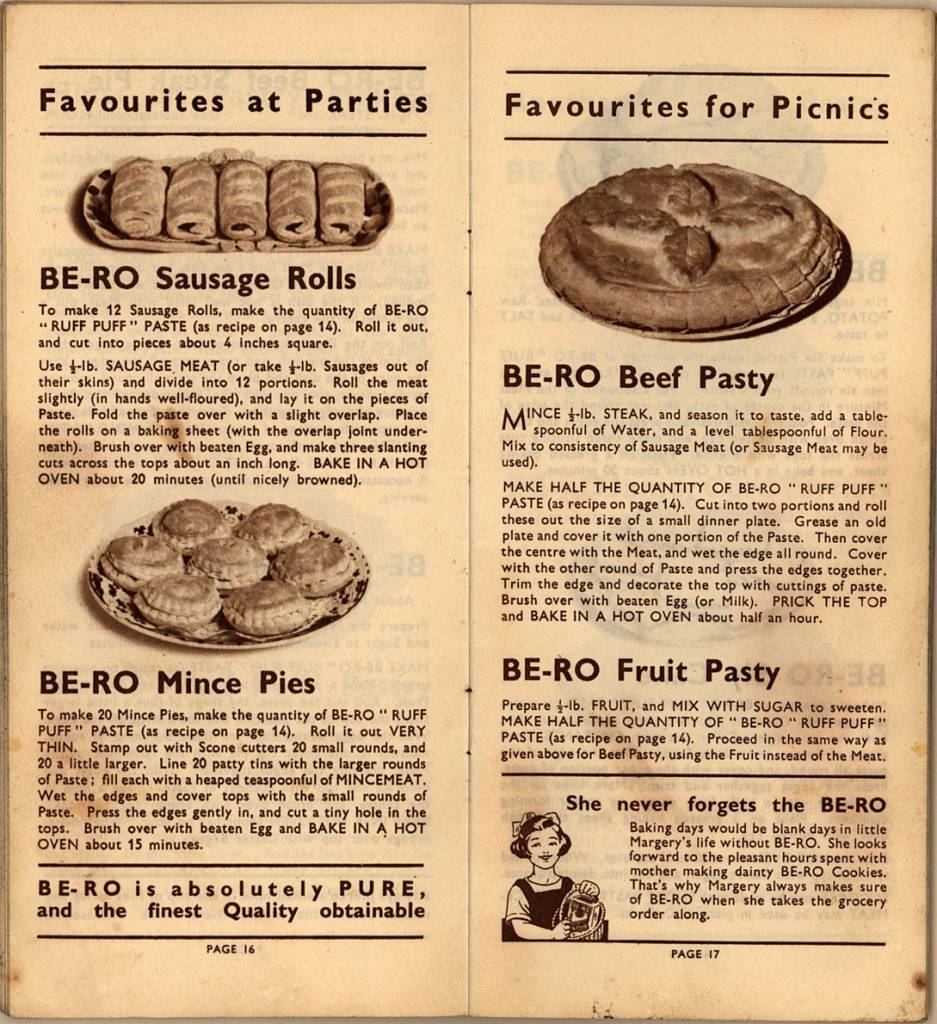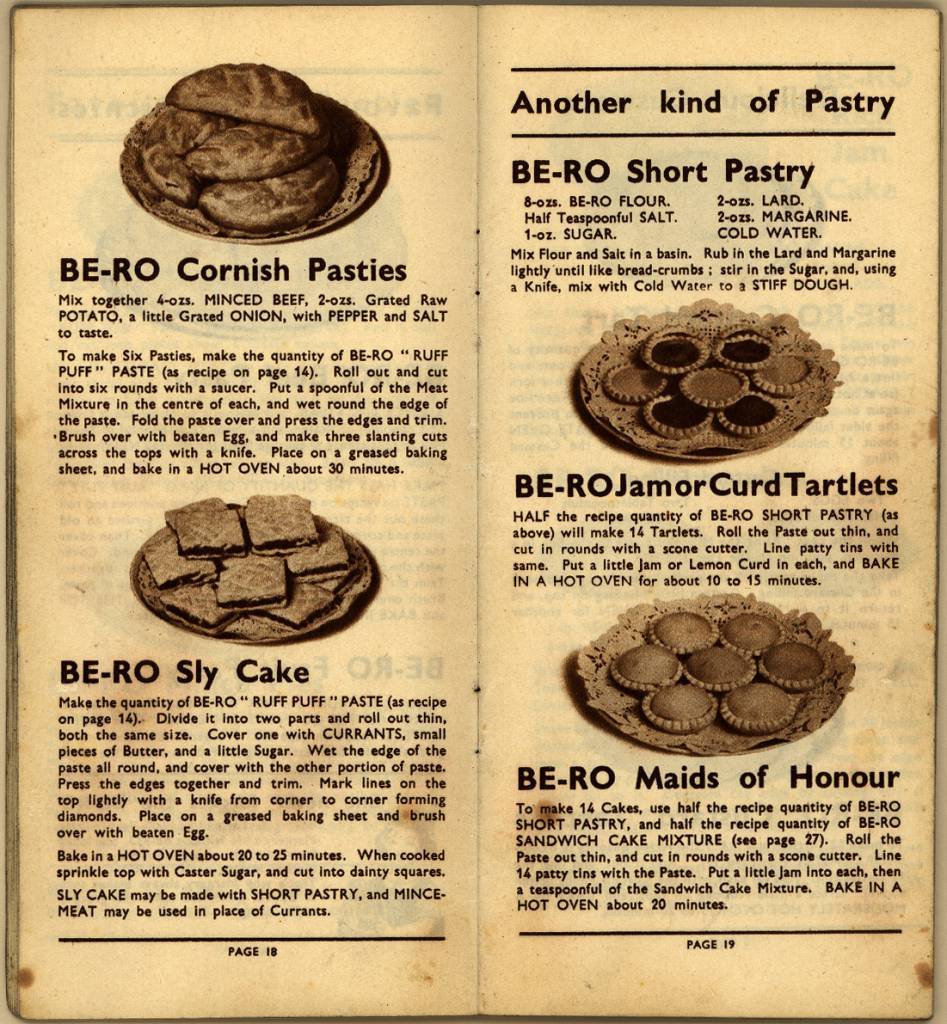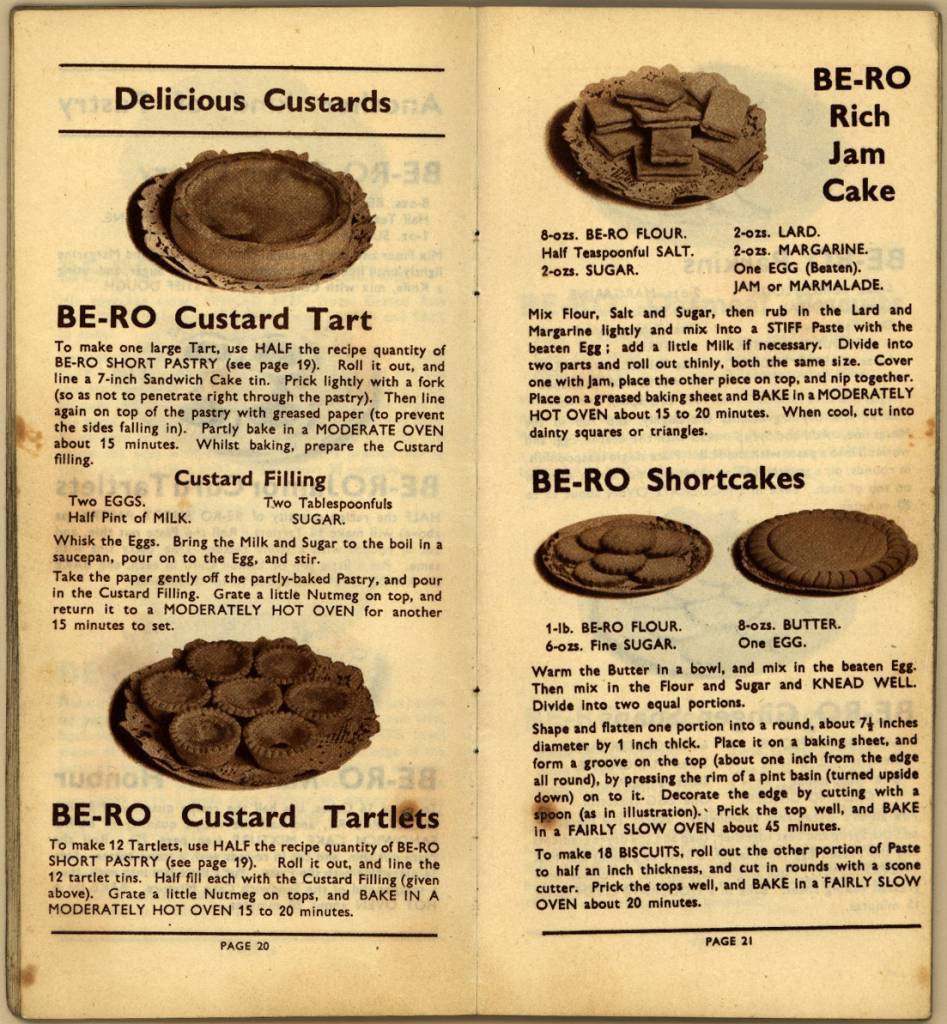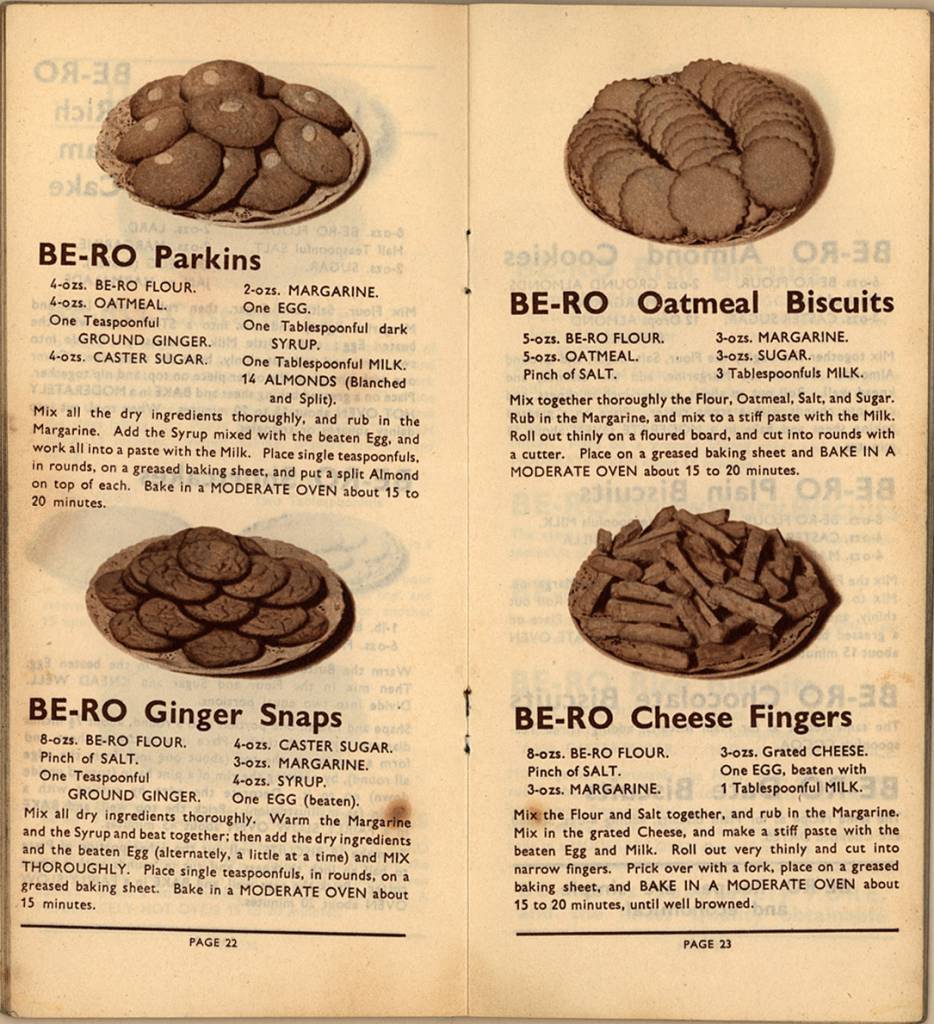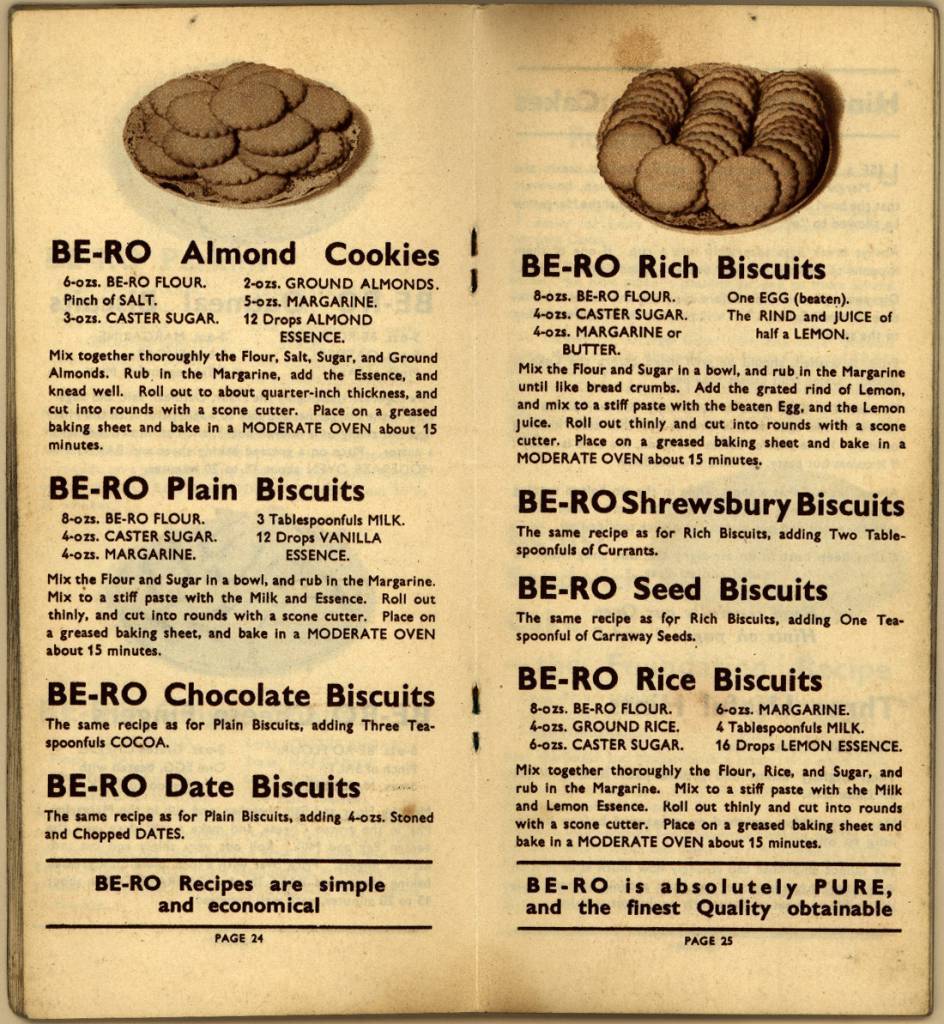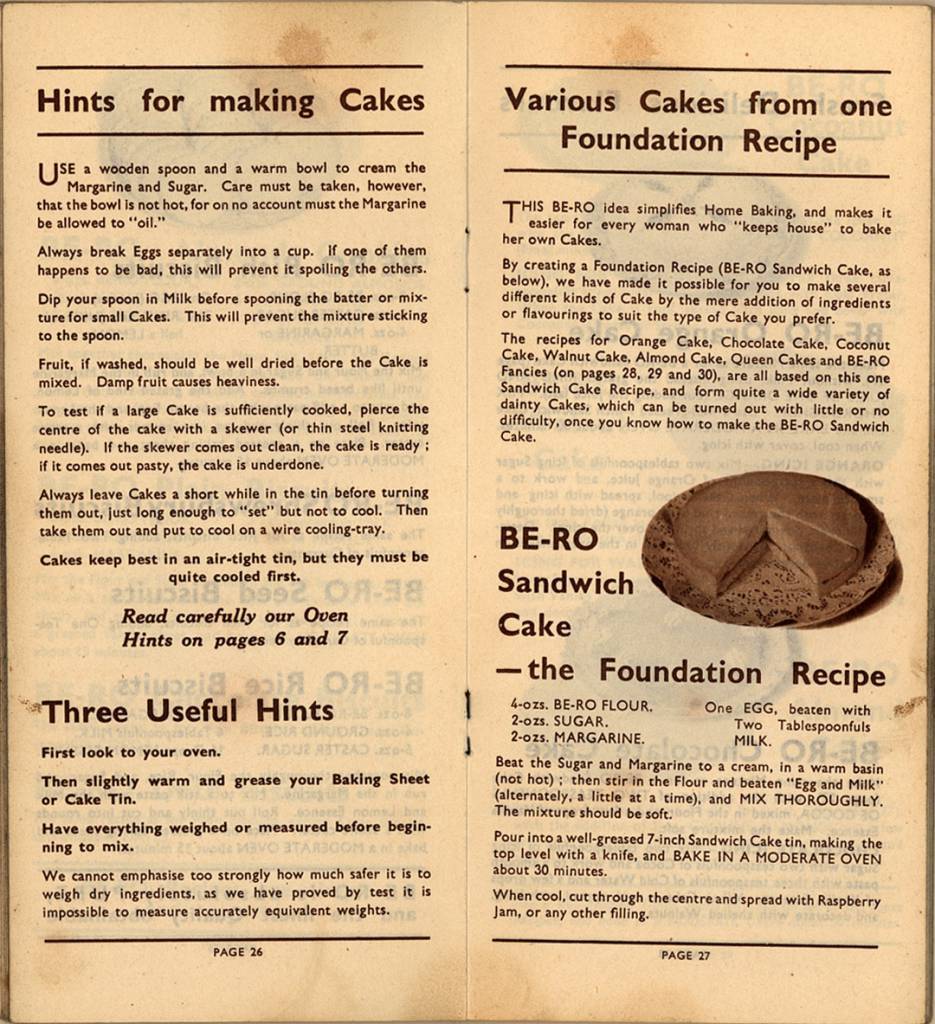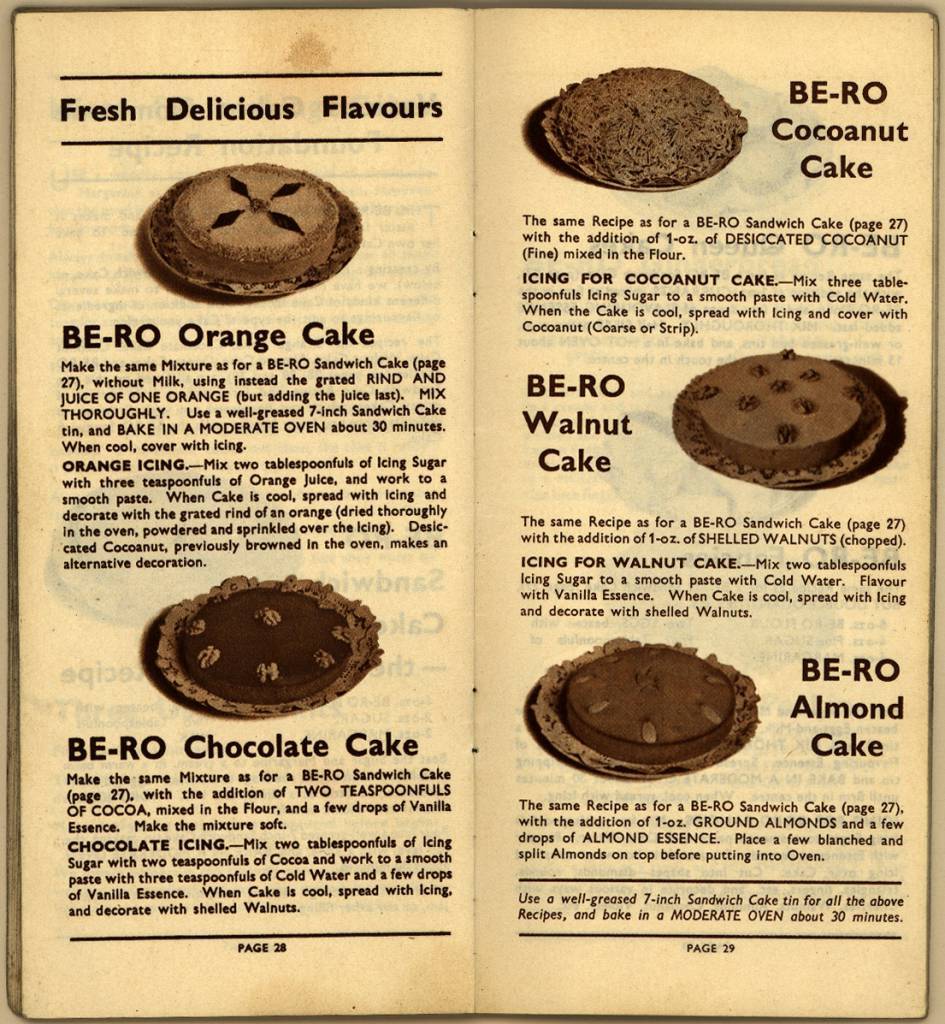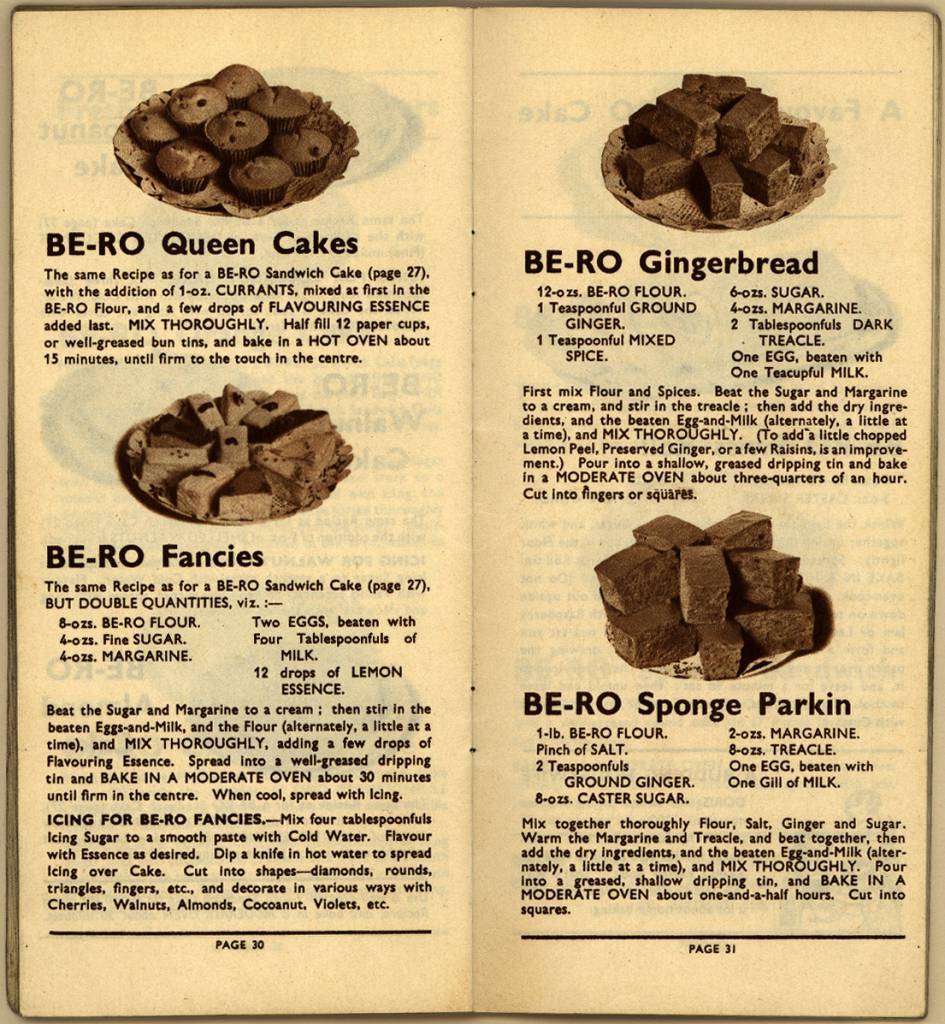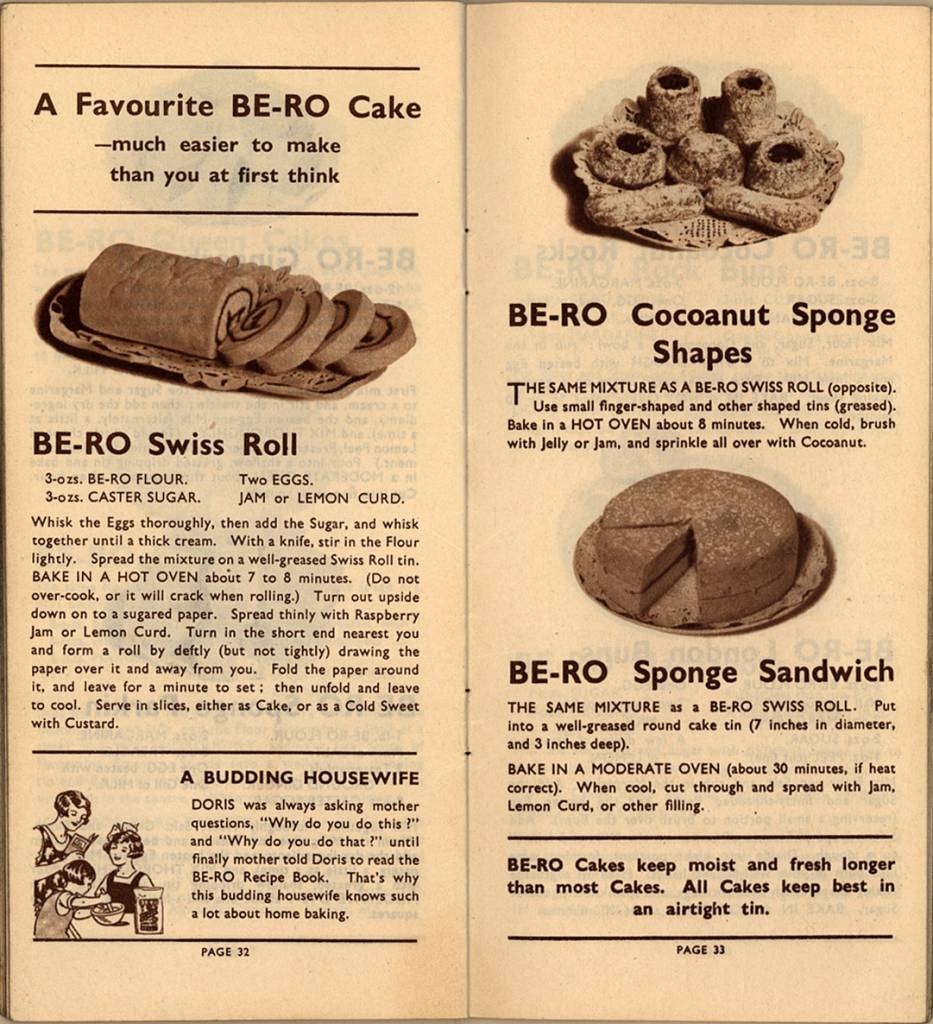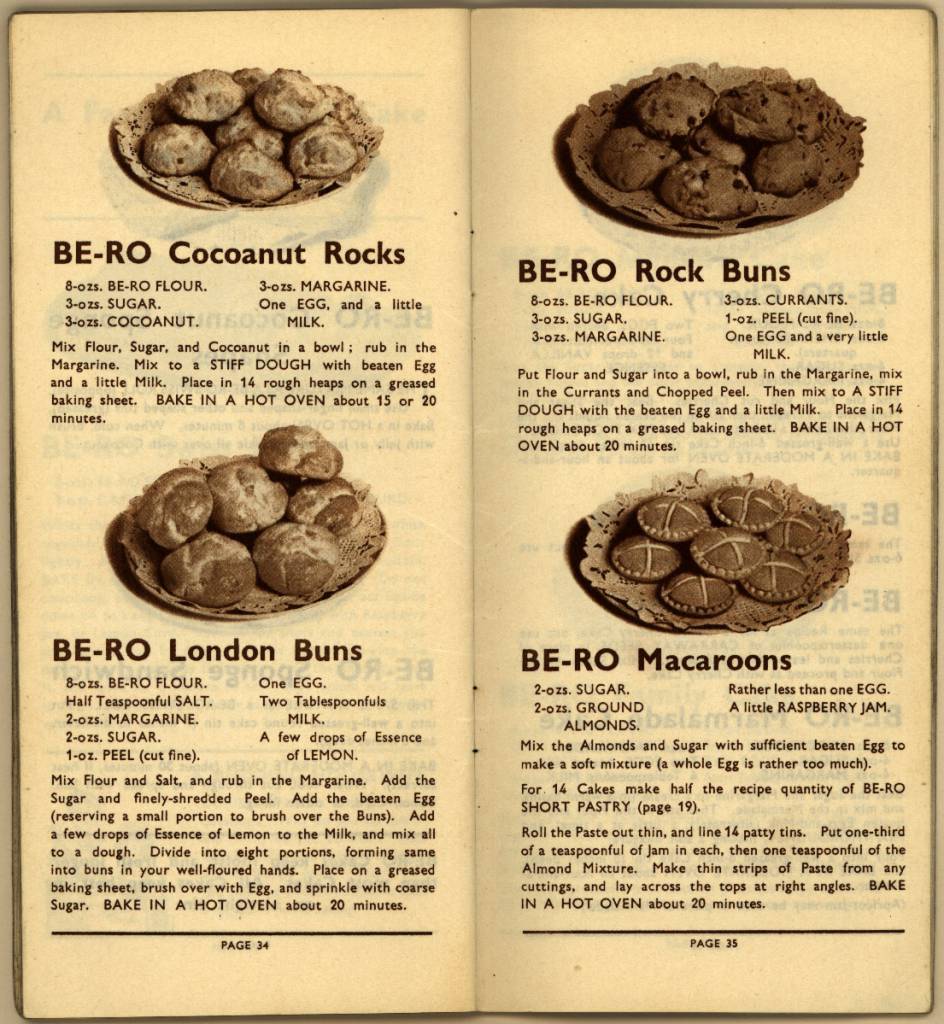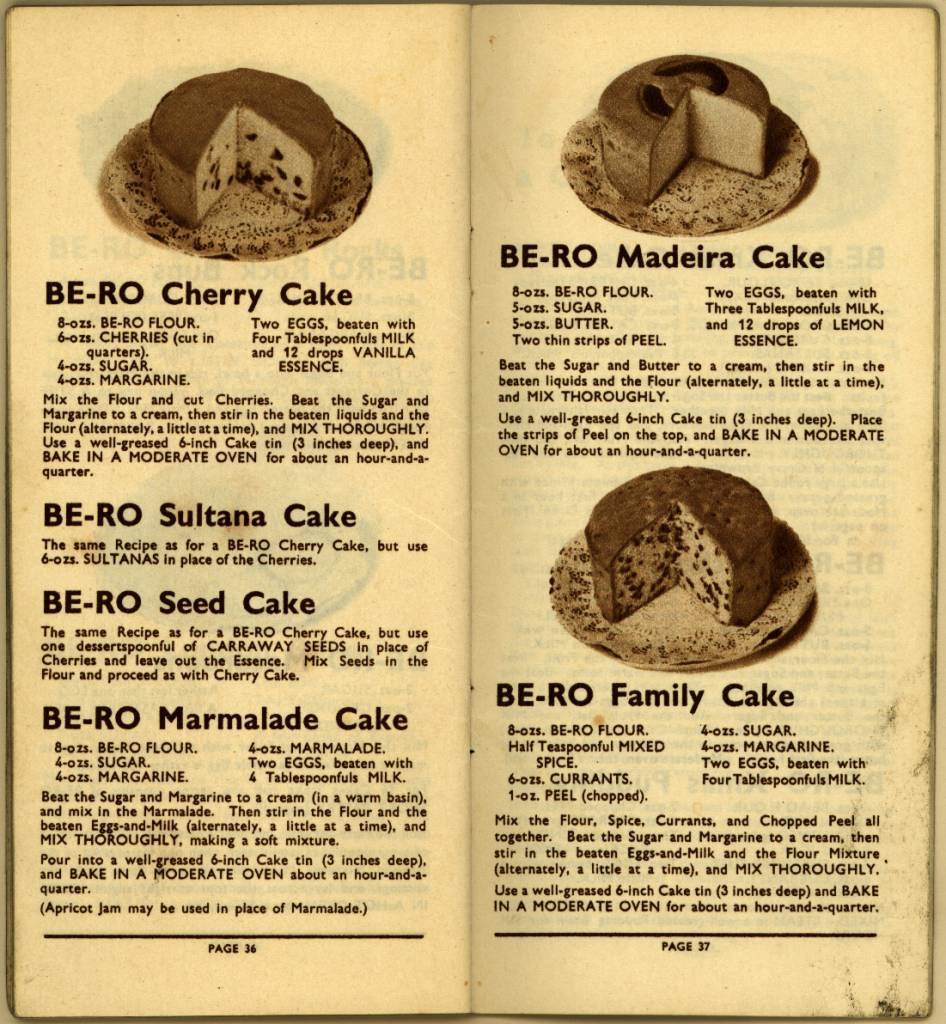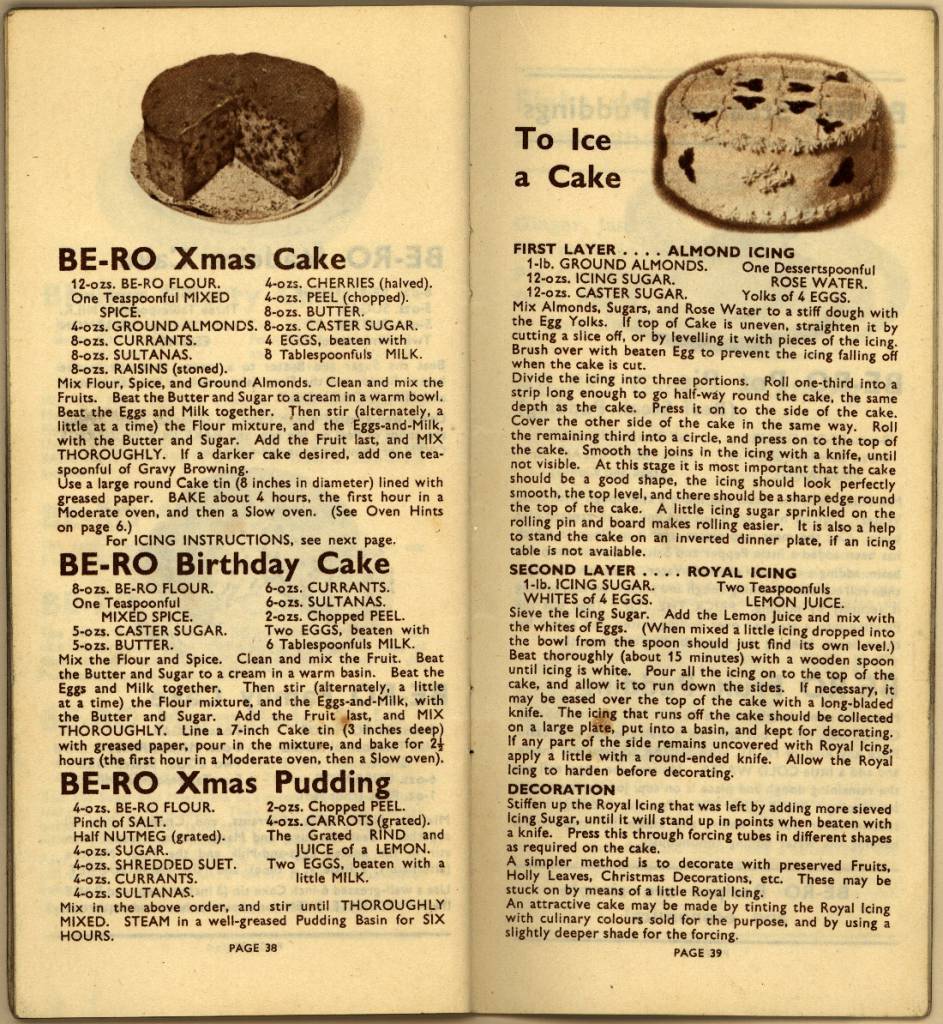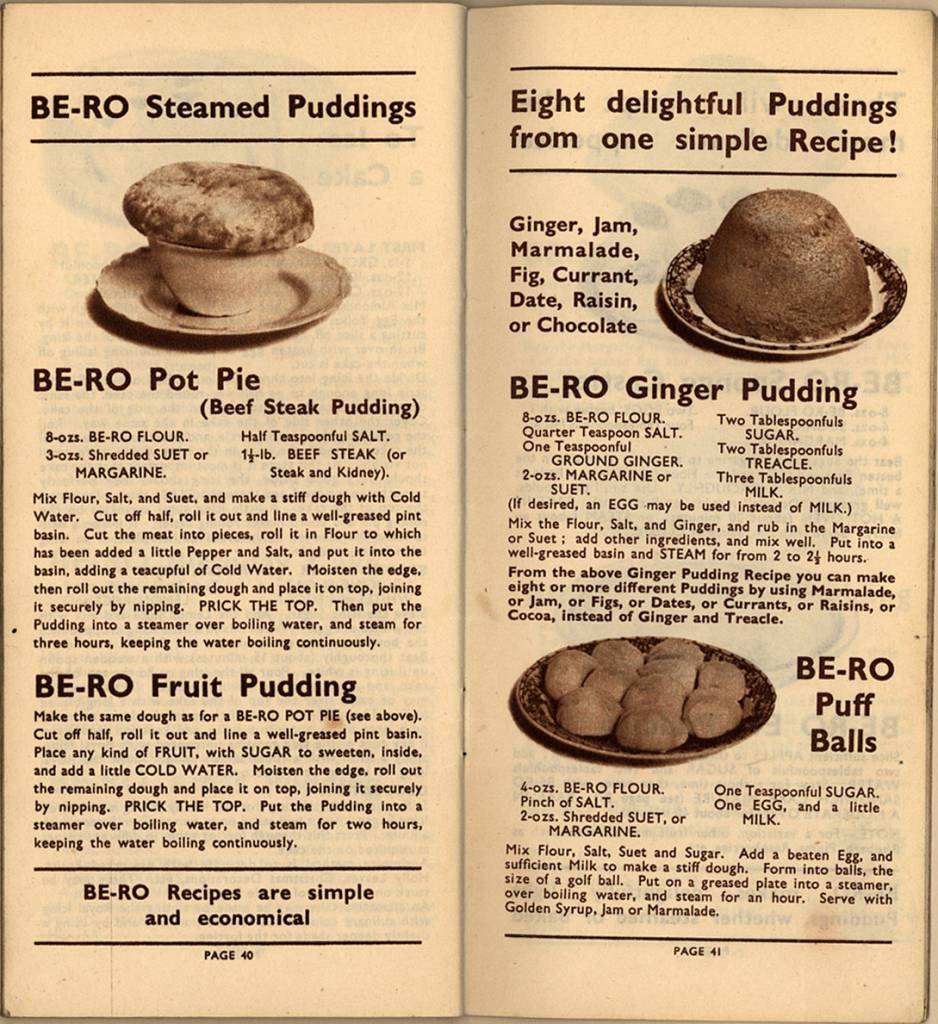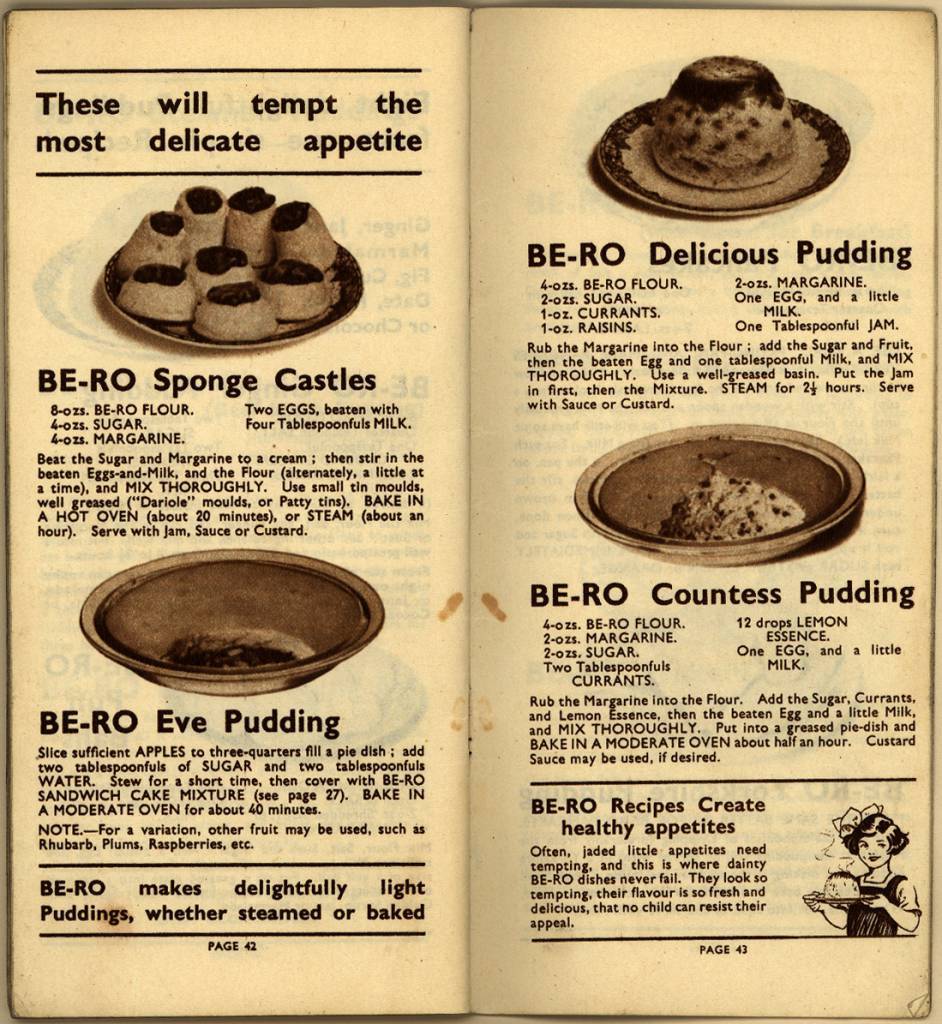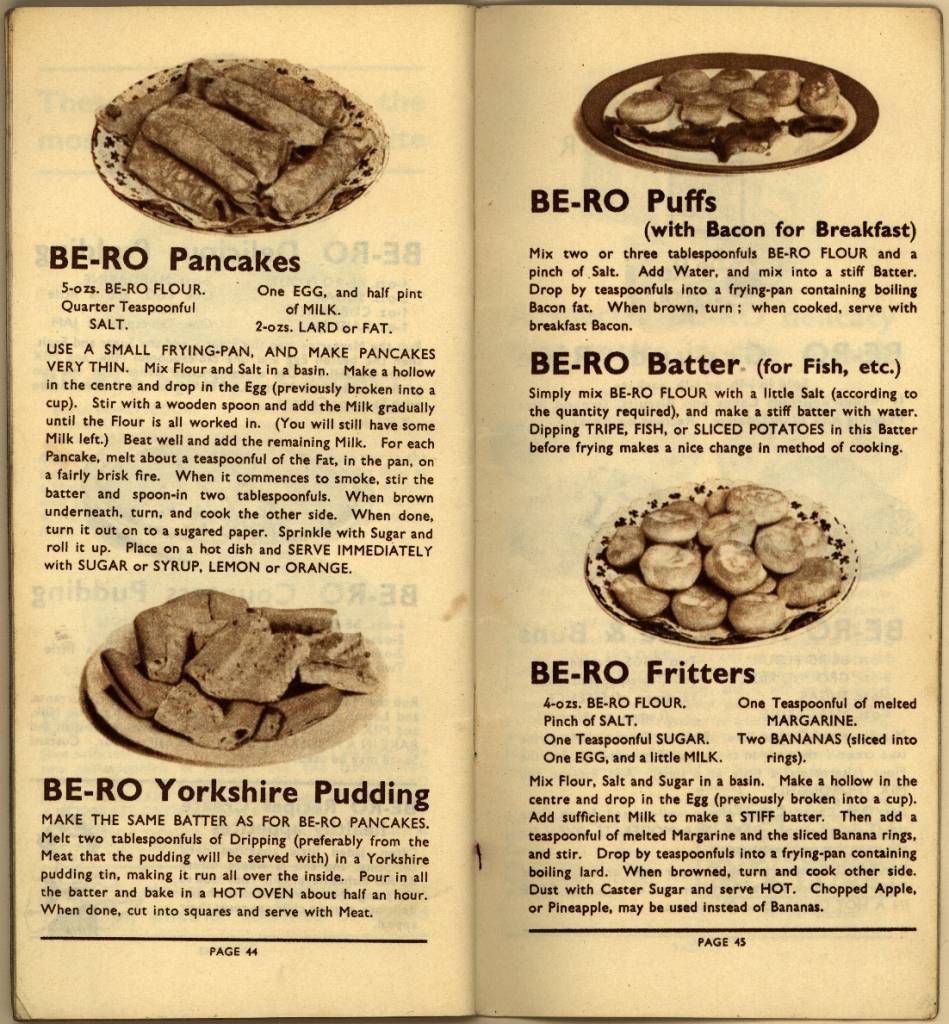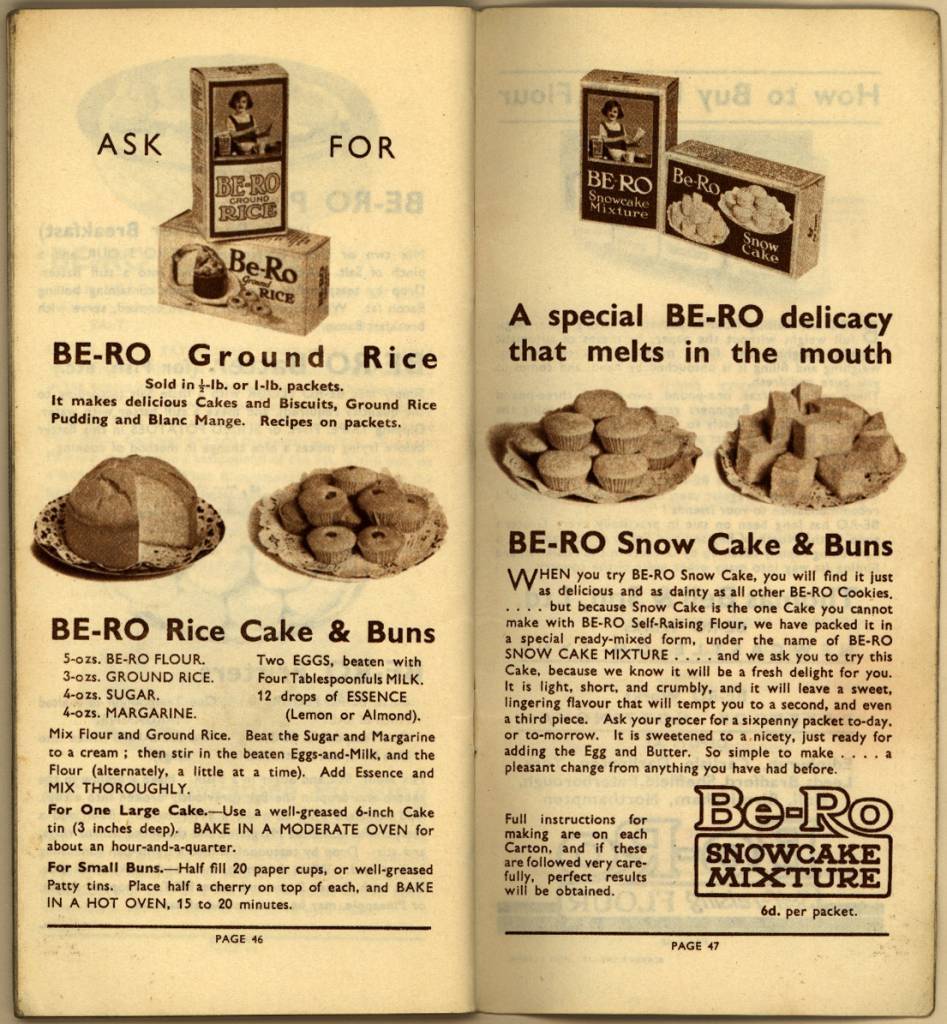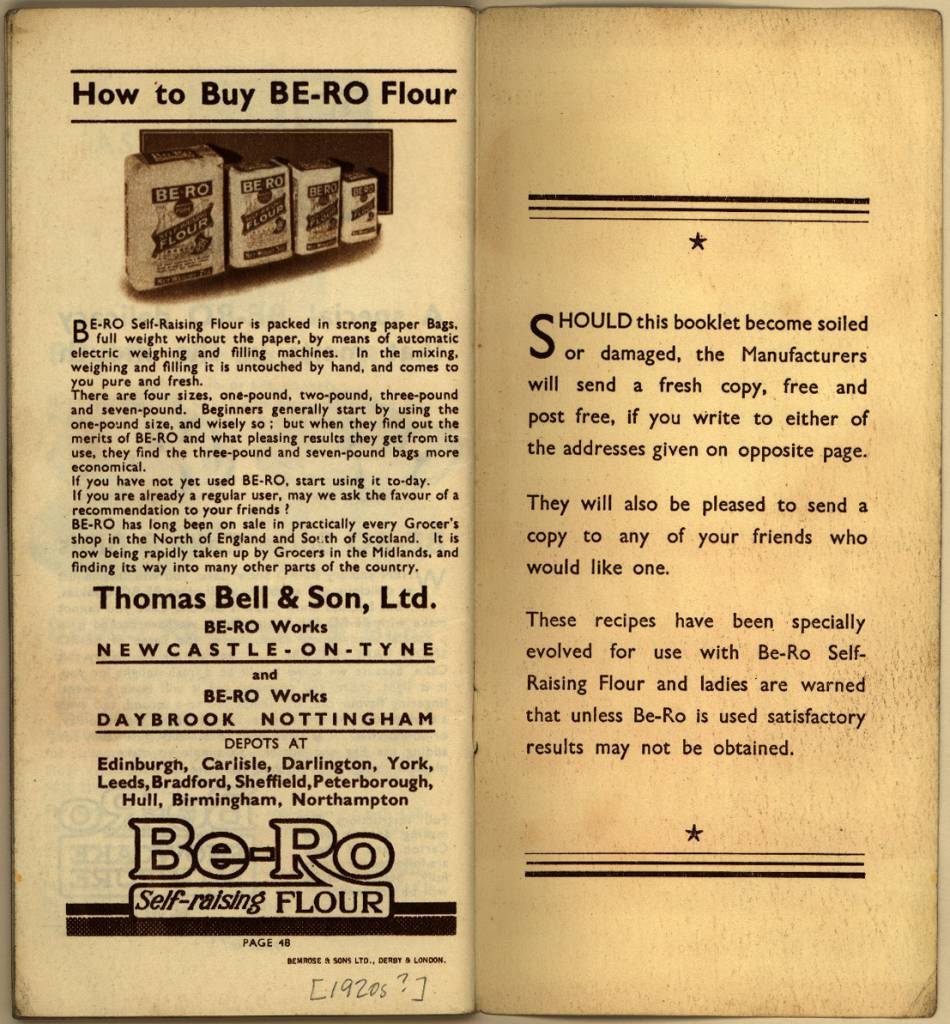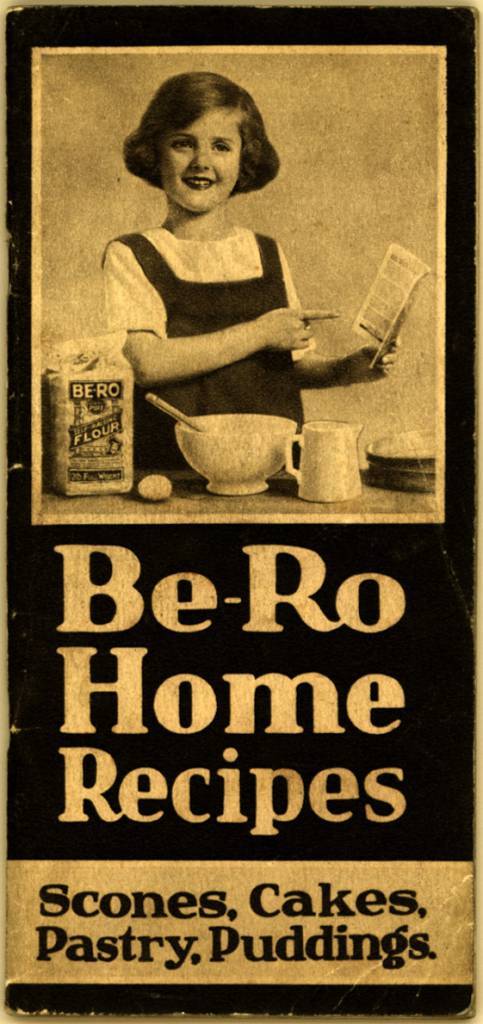
In the 1920s, budding cooks could learn the art of housekeeping from Be-Ro Home Recipes: Scones, Cakes, Pastry, Puddings, a book published by Thomas Bell & Son, Ltd. (Bemrose & Sons Ltd.).
The Be-Ro website explains:
Thomas Bell founded a wholesale grocery firm near the Tyne quays and railway station in Newcastle in the 1880s. Among his top-selling brands were ‘Bells Royal’ baking powder and a self raising flour. Following the death of Edward VII, it became illegal to use the Royal name. As a result, Bell decided to take the first couple of letters from the each of the two words of the brand name and turn them into the more catchy sounding ‘Be-Ro’.
In the early 1920s, plain flour was the flour most commonly used. Self raising flour was considered a novelty – consumers bought plain flour direct from the miller and self raising flour was only sold into independent grocers. In a bid to make self raising flour more popular among the general public, the company staged a series of exhibitions in the early 1920s where freshly baked scones, pastries and cakes were sold for a shilling to visitors.
These were so popular that people demanded that they had copies of the recipes so that they could bake the dishes at home. As a result a free recipe book was produced and handed out at the exhibitions as well as door to door. The Be-Ro cookbook contained recipes to feed hungry families on a very low budget.
The first Be-Ro book was published in 1923. It was aimed squarely at women and their daughters. They are are the makers:
Via: Duke, British Food History
Would you like to support Flashbak?
Please consider making a donation to our site. We don't want to rely on ads to bring you the best of visual culture. You can also support us by signing up to our Mailing List. And you can also follow us on Facebook, Instagram and Twitter. For great art and culture delivered to your door, visit our shop.
